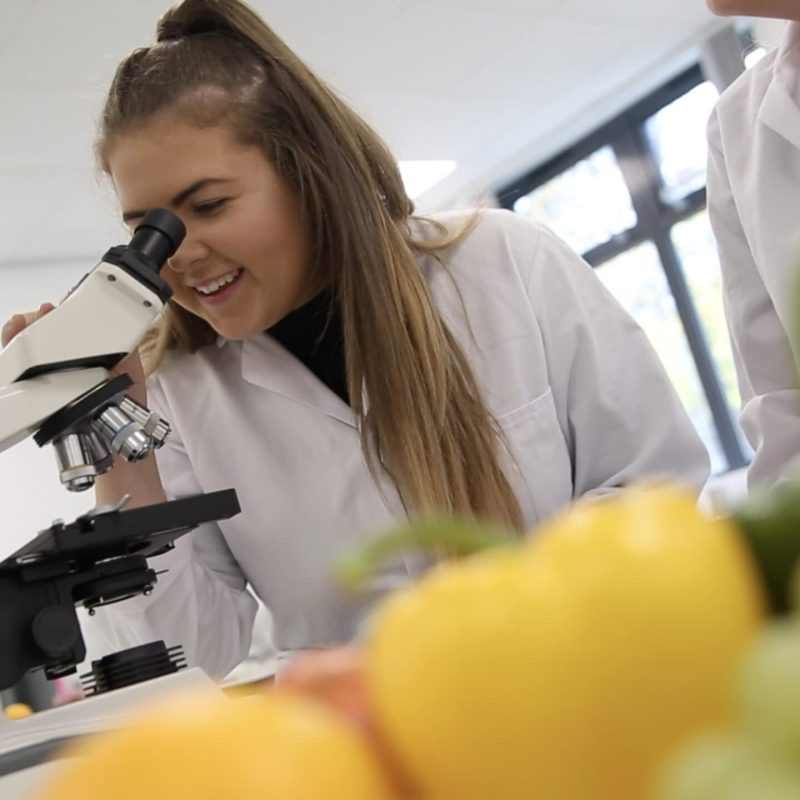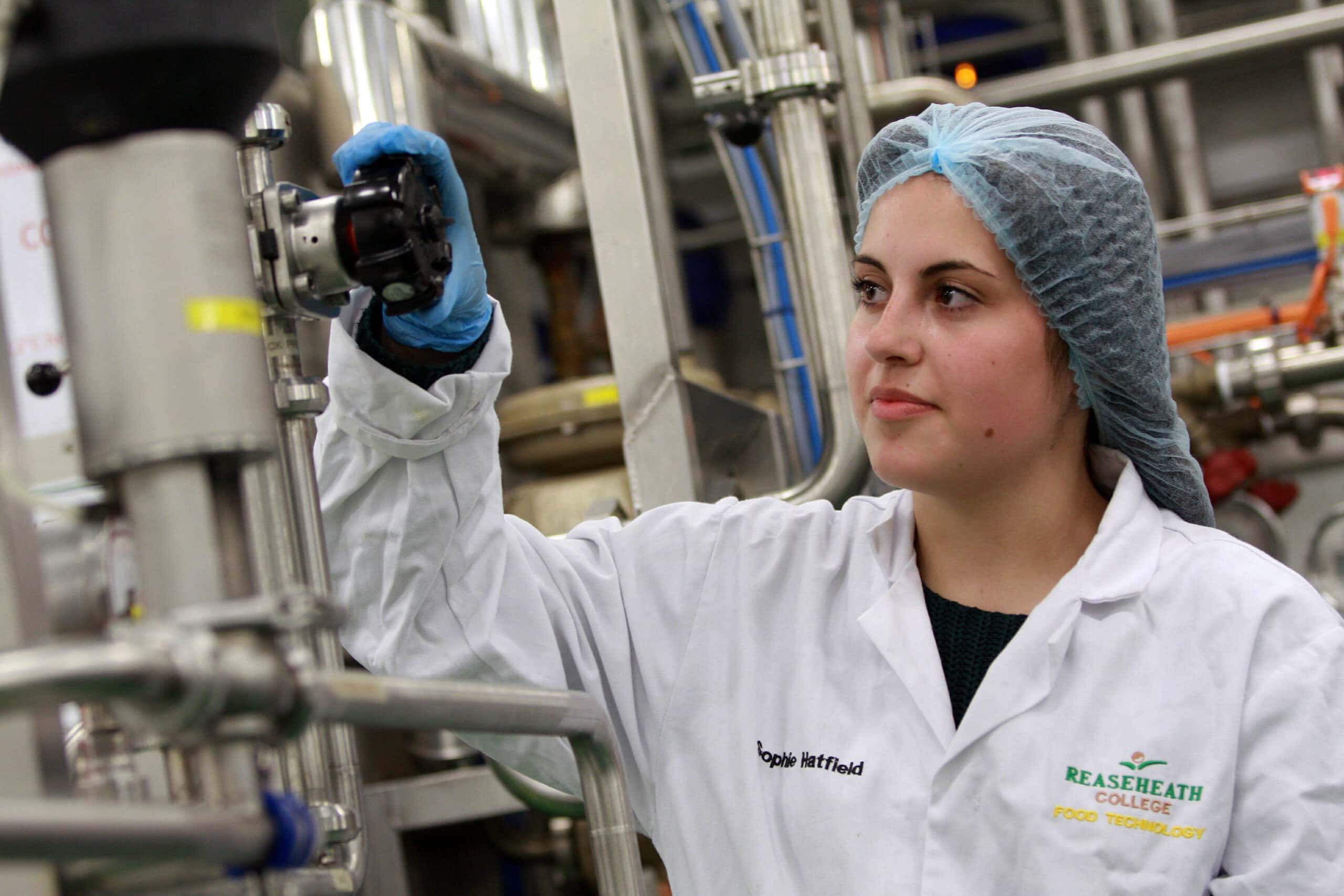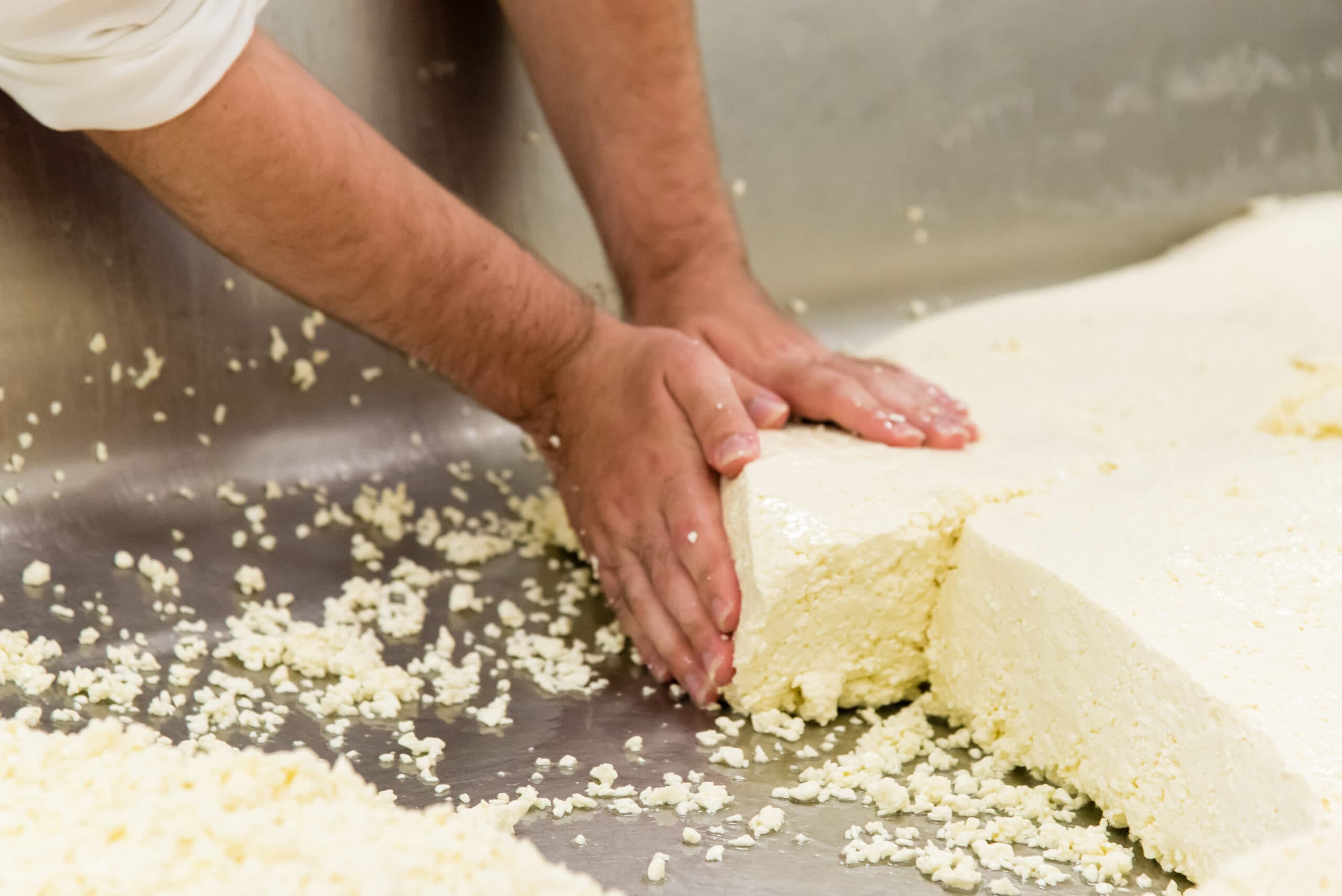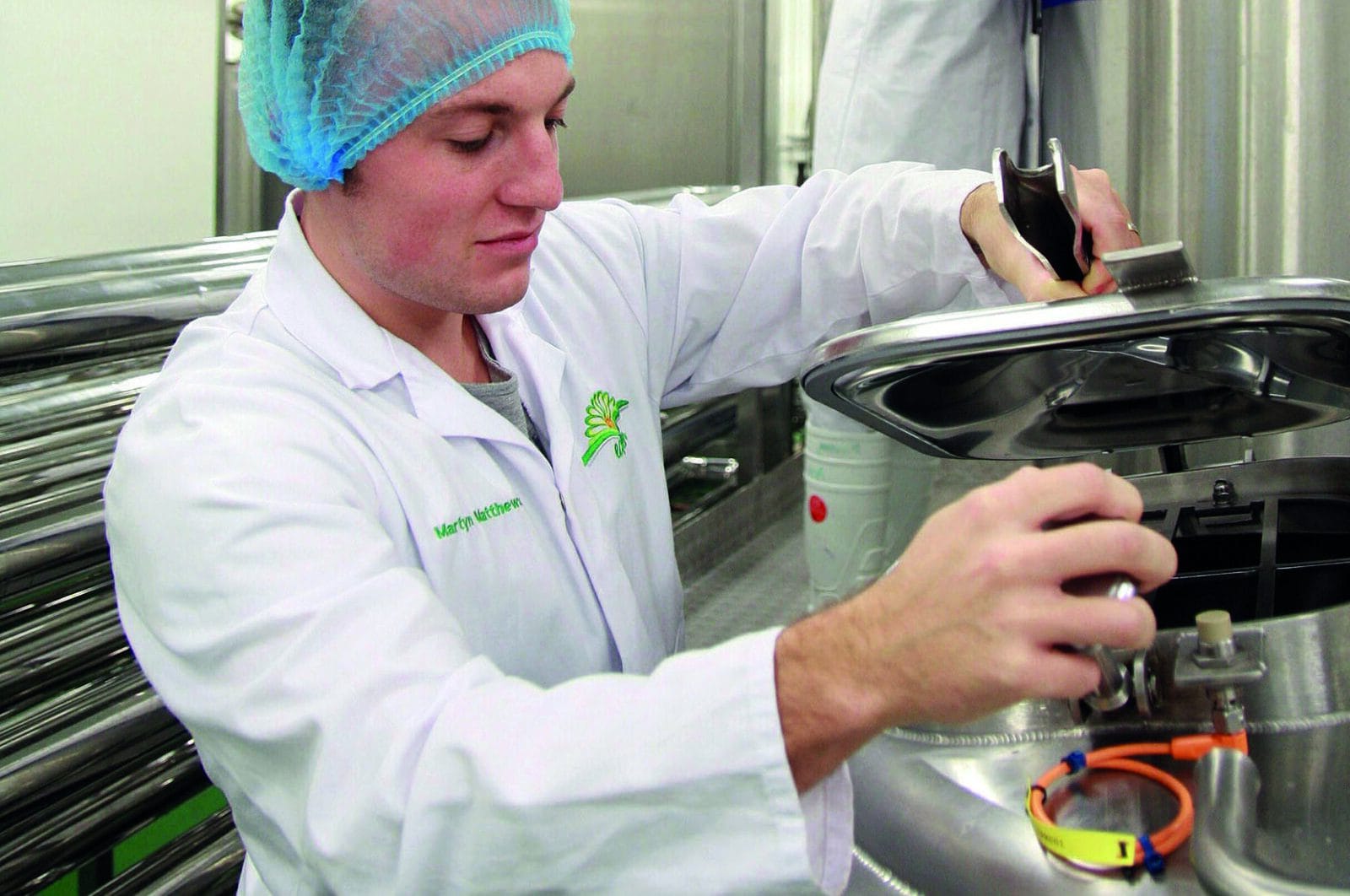An industry-focused course to inspire your passion of food science and innovation. If you want a career where you can make a difference and meet the demands of the food industry of the future, this is the course for you.
The challenges facing food production today have never been greater; food security, sustainability, nutrition, and food waste mean the industry requires confident, innovative thinkers, able to respond to these global issues.


With our Food Science and Innovation foundation degree, you will gain an in-depth knowledge of the food industry by studying core modules in food science, sustainability, new product development and much more.
The course has been carefully designed with input from industry to ensure that you understand the science behind food production, while developing the practical skills required to address productivity, profitability and growth.


The challenges facing global food production have never been greater. Could you find solutions to feed an ever-expanding population?
The course is delivered in the £7.4 million UCR Food Innovation Centre, an industry-leading academy with an international reputation in the food and drink sector.
The course provides an in-depth knowledge of the food industry with core modules in food science, sustainability, and new product development.
Learning is assessed by a combination of assignments, reports, practical assessments and examinations.
Overall workload
Your overall workload consists of class contact hours, independent learning and assessment activity, plus field trips. The following information gives an indication of how much time you will need to allocate to different activities at each year of the course:
Year 1:
26% of your time is spent in timetabled teaching and learning activity
Teaching, Learning and Assessment: 306 hours
Independent Study: 894 hours
Year 2:
22% of your time is spent in timetabled teaching and learning activity
Teaching, Learning and Assessment: 268 hours
Placement: 100 hours
Independent Study: 832 hours
Assessment Methods
Assessments are designed to encourage both academic skills and skills valued in the workplace. They include a combination of coursework and time constrained online assessments. Coursework may take many forms including essays, reports, data processing, presentations, academic posters, seminar discussions, interviews, critical reviews, portfolios of evidence and practical competency assessments. The time constrained online assessments vary, depending on the nature of the module, but may take the form of multiple-choice questions, essays, practical assessments, data handling questions, short answer quizzes, and in class assessments.
For more information please see our Course Information on our website.
Feedback
Feedback is supplied via Turnitin or directly from the module tutor. The majority of submissions are made via Turnitin and feedback for coursework is provided four working weeks after the submission date. If for unforeseen reasons this is not possible, the reasons will be communicated to the students within 2 weeks and the feedback prioritised within the department.
Written feedback will be supported verbally should the student require clarification. Formative assessment feedback will be provided at the time of completion where possible, with more detailed summative feedback for reports.
To offer graduates a leading position in the jobs market, students are given the opportunity to enhance their career prospects by taking additional qualifications during their course of study. These could include a range of qualifications such as:
Students will be able to access course timetables for the academic year in September.
Timetables are subject to change, but full-time students can expect to spend 2-3 days per week on campus. Part-time students will only attend for summative assessments or required workshops.
Tuition Fees
As a student at UCR, you will have two main costs to meet; your tuition fees and living costs.
Our full-time tuition fees for UK and EU students, entering University, can be found on our student finance page. These fees are charged for each academic year of a course and are set by the college annually.
Tuition fees for international students can also be found on our student finance page.
Equipment Costs
Prices of equipment are subject to change dependent on retailer.
Full-time: Apply directly through UCAS
Part-time: Apply directly through Reaseheath
A minimum of 64 UCAS points
September 2022
September 2023
Full-time: 2 years
Part-time: 4 years by blended learning
Here you will find useful information about the services and support available at University Centre Reaseheath. Click to expand each item:
University Centre Reaseheath is committed to providing additional financial support to those who need it. To find out about the bursary schemes available visit our additional financial support page.
For students to get the best out of their time at University Centre Reaseheath, we must both recognise that we owe obligations to each other. These obligations are set out in our UCR Student Contract. Before you accept an offer of a place at University Centre Reaseheath, it is important that you read these contract conditions. If you are going to be living in Halls of Residence, you will also need to read the Student Accommodation Licence Conditions. Both of these contracts can be found here.
Click here to view the University Centre Reaseheath Student Protection Plan.
All UCR students are given the opportunity to apply for residential accommodation. First year students are guaranteed accommodation and this offer is made to all applicants who live more than a reasonable daily travelling distance from Reaseheath (providing you have applied before the UCAS equal considerations deadline. For full details on our halls of residence visit our accommodation page.
We have a team of dedicated professionals on hand to offer you support. These include our Student Services Team, Inclusive Learning Team, Library and Learning Resources Team and the Reaseheath Careers Service. You can find more information on the support provided at Reaseheath on our support page.
University Centre Reaseheath is proud to welcome international students. For more information, please visit our international students page.